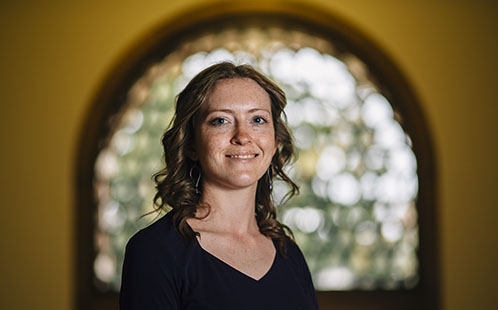Maureen Kessler
 Maureen Kessler
Maureen Kessler
Maureen Kessler’s research focuses on flying-foxes moving into urban environments and the potential for increased risk of Hendra Virus infection for horses in semi-urban areas.
Working with renowned bat expert and President of the Australian Bat Society, Dr Justin Welbergen from the University’s Hawkesbury Institute for the Environment, Maureen will spend a significant amount of time studying the diet of flying-foxes around Sydney, Brisbane and Adelaide.
“The issue of flying-foxes increasingly moving into urban areas seems to be the result of complex changes in their environment,” explains Maureen.
“The encroachment of urban areas into forests and removal of native trees through clearing has changed flying-foxes’ natural food sources but we don’t yet fully understand the relationship between environmental changes, movement of flying-foxes into urban locations and the risk of transmitting Hendra virus to horses on the urban fringe.
“Flying foxes are highly-mobile animals that move long distances to find food and towns and cities offer stable supplies. Most flying-foxes have an extremely low risk of transmitting Hendra Virus but stressed animals can increase the shedding of viruses in their excretions.”
“Understanding this relationship between the environment, flying-fox movements and stress, and impacts on populated regions are the major goals of my research. The Fulbright Scheme offers a wonderful opportunity with the world’s leading experts in flying-fox ecology – and to visit Australia!” she says.
Return to: Fulbright Scholars arrive at Western Sydney University
Fulbright Scholars

Victor Lopez-Carmen
Victor Lopez-Carmen is collaborating with Professor Lisa Jackson Pulver AM, who is Western Sydney University’s Pro Vice-Chancellor (Engagement and Aboriginal and Torres Strait Islander Leadership).

Maureen Kessler
Maureen Kessler’s research focuses on flying-foxes moving into urban environments and the potential for increased risk of Hendra Virus infection for horses in semi-urban areas.
Mobile options:

